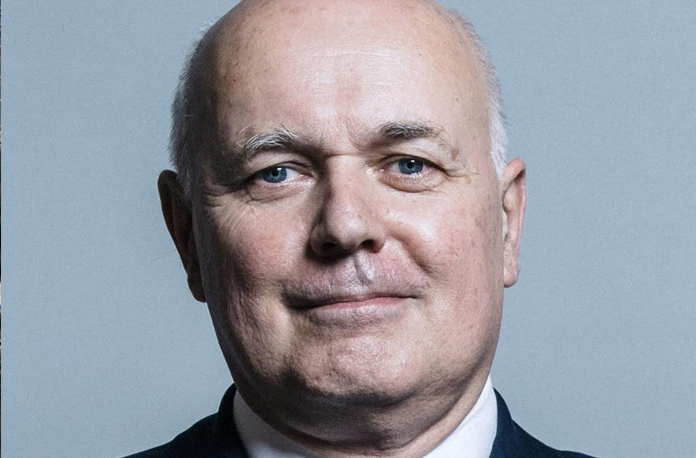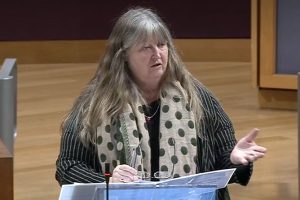THE ROLLOUT of Universal Credit has been delayed again to 2024.
Over seven years after it was originally supposed to be implemented in full and over a decade after it was first piloted, the scheme has lurched from crisis to crisis in its troubled history.
Universal Credit merges six existing benefits, including housing benefit and child tax credits, into one monthly sum.
The government’s stated aim is to simplify the welfare system, both to help claimants, cut fraud, and encourage work. However, its ultimate effect has been to slash welfare payments to the most vulnerable and plunge claimants into debt as they wait for their first payment of the new benefit.
The fresh delay, to September 2024, was uncovered in an upcoming BBC documentary about the government’s contentious welfare reform. It will add an estimated £500m to the Universal Credit programme, which is already billions over budget.
The delay has arisen because fewer people than expected had signed up to the new system, according to a new BBC documentary, Universal Credit: Inside the Welfare State.
In an excerpt released by the BBC, Neil Couling, the DWP’s director-general for Universal Credit said, in August last year: “We’ve had a lot of anecdotal evidence of people being scared to come to Universal Credit.
“It’s a potentially serious issue for us, in terms of completing the project by December 2023, but I’m urging people not to panic,” he said.
Mr Coulting continues in a subsequent meeting to say: “Three, six or nine months, it doesn’t matter – the headline will be: ‘Delay, disaster’.
“I would say, ‘Go safe, put the claimants first, and I’ll take the beating.'”
This week, the DWP admitted the delay was necessary because the number of people who had moved on to UC was lower than official estimates.
The BBC documentary shows the DWP acknowledging that the reason for the lower-than-expected uptake was the fear that new Universal Credit claimants would lose out.
Gross and ongoing delays in making benefit awards on the new system have plunged people into debt recouped from their benefits due to the waiting period for its first payment imposed by the UK Government.
Universal credit was phased in during 2013.
The benefit was first due for full rollout by April 2017. However, transferring claimants to the new system has been plagued by a series of technical delays. Those delays include a fiasco over IT infrastructure and the failure of the system to account for varying incomes for the self-employed and those employed on casual or zero-hour contracts.
Last week, the UK Government lost a major case on the benefit’s rollout.
In a decision handed down in the Court of Appeal by the Master of the Rolls, Lord Justice Singh, the court ruled transitional provisions relating to the treatment of disabled persons were discriminatory. It found that a severely disabled person who moved from an area where UC had not been rolled out to an area in which it had would be treated less favourably than a person who did not move. In a second case, the court quashed provisions meaning those who migrated ‘naturally’ from Severe Disability Premium to Universal Credit less favourably than those who made the transition under the managed migration scheme.
Last year, former DWP Secretary Amber Rudd said that payment delays of Universal Credit were ‘the main issue’ leading to dependence on foodbanks.
The delay’s announcement follows the publication of a report by the Resolution Foundation
The report notes that the final – and most challenging – phase of the roll-out, involving the transfer of existing benefit and tax credit claimants onto UC, is due to start later this year.
The Foundation states that a marginal average increase of a whacking £1 a week for some claimants ‘masks sizeable groups of families that lose out by large sums, and significant geographical variation across the UK. Thanks to factors such as local rent and earnings levels, and the characteristics of local populations, some parts of the country will be left significantly worse off as the switch to UC goes ahead’.
In areas with a relatively high proportion of single parents, out-of-work single people and disabled people, all of whom fare badly under UC, claimants lose out. Also, while Universal Credit favours working families with high rents, it hits those in areas with below-average rent levels.
The Foundation adds that policymakers in Whitehall, and across the UK, need to consider the impact of Universal Credit at a local level. At exactly the time that policy debates are rightly focusing on what can be done to close economic gaps between parts of the UK, this major welfare reform will be rolled out with very different impacts on those places.
Laura Gardiner, Research Director at the Resolution Foundation, said: “Welcome recent reforms mean that Universal Credit is now set to be marginally more generous than the benefits it is replacing. But this average hides a complex mix of winners and losers, with families in some areas of the UK faring particularly badly.
“As well as making reforms at a national level – such as helping families to overcome the first payment hurdle and offering more flexibility for those with childcare – policymakers across the country need to better understand the effect Universal Credit will have in different places. That understanding should be central to policy debates that are rightly focusing on what can be done to close economic gaps between parts of the UK.”
Welfare minister Will Quince said: “Universal Credit is the biggest change to the welfare system in a generation, bringing together six overlapping benefits into one monthly payment and offering support to some of the most vulnerable people in society.
“It is right that we revisit our forecasts and plan, and re-plan accordingly – ensuring that the process is working well for people on benefits.
“Claimants will not lose money due to this forecasting change.”
Universal Credit now seven years late















Add Comment